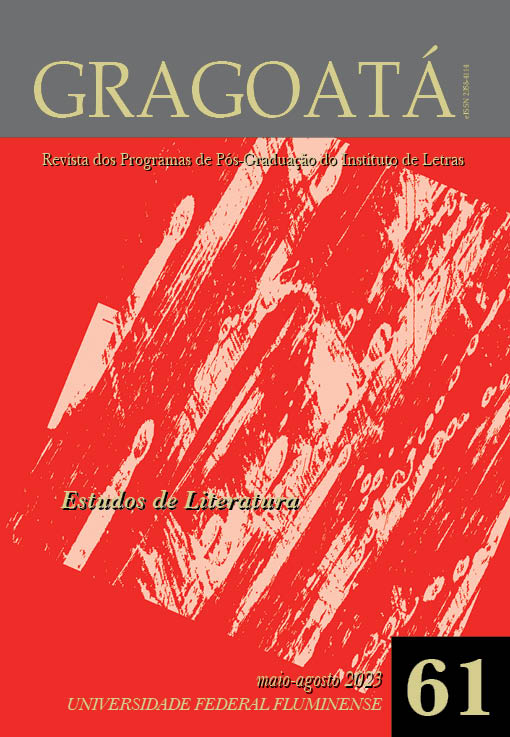Árvores Sagradas: uma cosmovisão no Chthuluceno
Mots-clés :
Literatura e Meio ambiente, Mia Couto, Ecocrítica, Alteridade, Decolonialidade da naturezaRésumé
O presente artigo propõe reflexões na perspectiva do pensamento ecocrítico a partir da leitura dos contos “A palmeira de Nguézi” e “O embondeiro que sonhava pássaros” de Mia Couto. Ao revelar a importância da árvore como símbolo sagrado, nos contos, o escritor moçambicano apresenta conexões da ancestralidade através de uma cosmovisão que integra, de forma indissociável, o ser humano com a natureza. O legado intergeracional de diversas culturas pertencentes aos povos tradicionais ao redor do mundo vem sendo afetado por interferências nocivas na natureza ditadas por processos colonizadores. Diante deste cenário, em que são incluídos os saberes ancestrais, destacamos o Chthuluceno proposto por Donna Haraway no qual “estamos em cena uns para os outros”. Ressaltamos a importância de temas importantes relacionados aos tempos geológicos propostos por Paul Crutzen (Antropoceno), Jason Moore (Capitaloceno) e Donna Haraway (Chthuluceno), como também questões de alteridade ao referenciarmos o devir-vegetal representado nos contos de Mia Couto como uma indissociável relação ser-humano-natureza. Diante dessa perspectiva, buscou-se trazer à luz do discurso ecocrítico o resgate da ancestralidade moçambicana conectada com “A palmeira de Nguézi” e “O embondeiro que sonhava pássaros. Considerando-se a transdisciplinaridade no contexto literário e ambiental, os contos analisados direcionam para a intrínseca relação ser-humano-natureza e despertam para uma melhor compreensão sobre as relações humanas no tocante à alteridade e reflexões decoloniais.
Téléchargements
Téléchargements
Publiée
Numéro
Rubrique
Licence
(c) Copyright Gragoatá 2023

Ce travail est disponible sous la licence Creative Commons Attribution 4.0 International .
AUTORIZAÇÃO
Autores que publicam em Gragoatá concordam com os seguintes termos:
Os autores mantêm os direitos e cedem à revista o direito à primeira publicação, simultaneamente submetido a uma licença Creative Commons Atribuição 4.0 Internacional (CC BY 4.0), que permite o compartilhamento por terceiros com a devida menção ao autor e à primeira publicação pela Gragoatá.
Os autores podem entrar em acordos contratuais adicionais e separados para a distribuição não exclusiva da versão publicada da obra (por exemplo, postá-la em um repositório institucional ou publicá-la em um livro), com o reconhecimento de sua publicação inicial na Gragoatá.
A Gragoatá utiliza uma Licença Creative Commons - Atribuição CC BY 4.0 Internacional.











